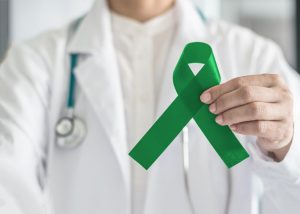
Routine screening tests for liver cancer are not recommended unless risk factors have clearly been identified. The American Association for the Study of the Liver Diseases (AASLD) recommends testing patients at-risk for liver cancer with routine blood tests such as alpha-fetoprotein as well as an ultrasound of the liver every six to twelve months. As with other types of cancers, early diagnosis is highly recommended since it translates into more effective therapies and therefore much longer survivals, even cures.
What are the Risk Factors of Liver Cancer?
A risk factor for cancer consists of anything that increases the chance of getting a specific cancer, such as liver cancer. Different cancers have different risk factors, for example exposure to asbestos increases the chance of developing mesothelioma a type of lung cancer, whereas viral hepatitis is directly associated with primary liver cancer. Some risk factors can be completely eliminated such as alcohol or smoking if someone stops smoking or drinking. Other factors, such as age or family history cannot be changed, altered or eliminated. Having one or more risk factors does not mean that the cancer will develop, rather it simply means the risks of developing that specific type of cancer are much greater than if the risk factors were absent. Alternatively, in some cases, cancer can develop in the complete absence of any risk factors.
For liver cancer, the most significant risk factors include infection with hepatitis B (much more common in Asia and Africa) or C (most common in the US), chronic alcohol, obesity (non-alcoholic fatty liver disease) and other rarer factors. In the case of alcoholism, it is important to note that even those who have stopped drinking for many years can still develop liver cancer. It is generally more common in men and those over the age of 60.
Other causes of liver cancer include the following:
- Genetics: If you have a family history of liver cancer, you are more likely to develop it.
- Race and Ethnicity: In the United States, Asian Americans and Pacific Islanders have the highest risk of developing liver cancer. This is followed by Hispanic/Latinos, Native Americans, African Americans, and Caucasians.
- Chronic Viral Hepatitis: This is one of the most common risk factors for developing liver cancer. Long-term infection of hepatitis B or C can lead to cirrhosis of the liver, which is another common risk factor.
- Cirrhosis: This is a disease where liver cells are damaged and replaced by scar tissue. Many people who develop liver cancer have evidence of cirrhosis.
- Alcohol: Heavy drinking, especially over a long period of time, increases the risk of cirrhosis and liver cancer.
- Obesity: Because obesity can result in fatty liver disease and cirrhosis, this often leads to developing liver cancer.
Less common:
- Anabolic Steroids: These are used by some athletes to increase their strength and muscle mass. Long-term anabolic steroid use can increase the risk of hepatocellular cancer.
- Type 2 Diabetes: This has been linked with an increased risk of liver cancer, usually in patients who also have other risk factors such as heavy alcohol use and chronic viral hepatitis.
Liver cancer is notoriously difficult to treat and manage resulting in generally poor outcomes. However, the advent of new more effective therapies is changing this trend. The American Cancer Society estimated that there were 43,470 new cancer cases and 28,470 deaths from liver cancer in the United States in 2016. This is why it is critically important to undergo regular screenings if at-risk for the disease..
The USA Oncology team strives to provide world-class cancer treatment and care that will leave you feeling confident about the future. If you’ve been diagnosed with primary or secondary liver cancer, get in touch today at 855.870.4747! Our friendly team can answer all of your questions or schedule an initial consultation with our industry-leading interventional oncologists.
disclaimer+++
The information in blog articles is for information purposes only. The content is not intended to be a substitute for professional medical advice, diagnosis, or treatment. Please always consult a licensed healthcare professional for advice on any specific medical condition or any changes to your healthcare decisions.
